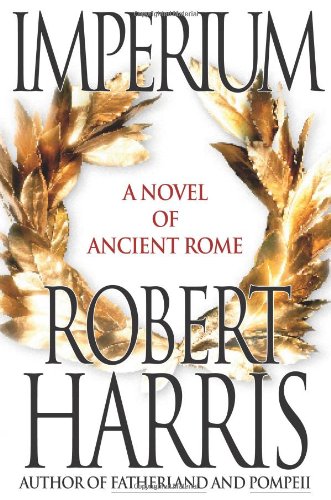Imperium
Harris might be one of the most versatile historical novelists writing today, with successful efforts in alternate history (Fatherland), World War II code-cracking (Enigma, listed as one of Richard Lee’s ten favorites in an early Society publication), a Roman disaster novel (Pompeii), and now a novel of Roman political life. Imperium concerns some of the best-documented events in ancient history, those in the life of Marcus Tullius Cicero, beginning with the prosecution of a greedy Sicilian governor and ending with the election of the new man from Arpinium as consul. Cicero’s favored slave Tiro narrates, which assures a portrait largely sympathetic to the orator but not without revealing how much personal ambition motivates him. One of the best realized characters is Terentia, who advises her husband that if he wants to finish a trial before the religiously imposed deadlines, he might think of being less long-winded. Her character is reminiscent of Xantippe in Gerald Messadié’s excellent Madame Socrate. Cicero comes across as a master politician, able to act as his own nomenclator and capable of remembering the tribe of each voter and his relative importance within it. His brother Quintus literally wrote the book on electioneering in Rome, but it is clear that Cicero’s career served as the model.
This is the kind of book which invites reading an accompanying biography, such as Anthony Everitt’s Cicero, not to correct Harris’s history but to see how well he fitted his story around the facts. Because this novel only covers the first half of Cicero’s career, and Tiro was known to have lived a long time, this reviewer hopes to read a sequel.










